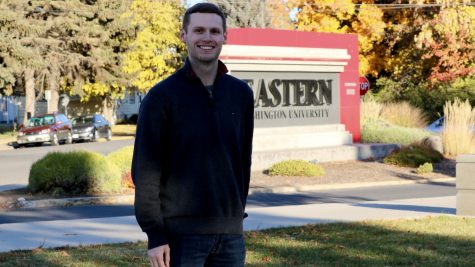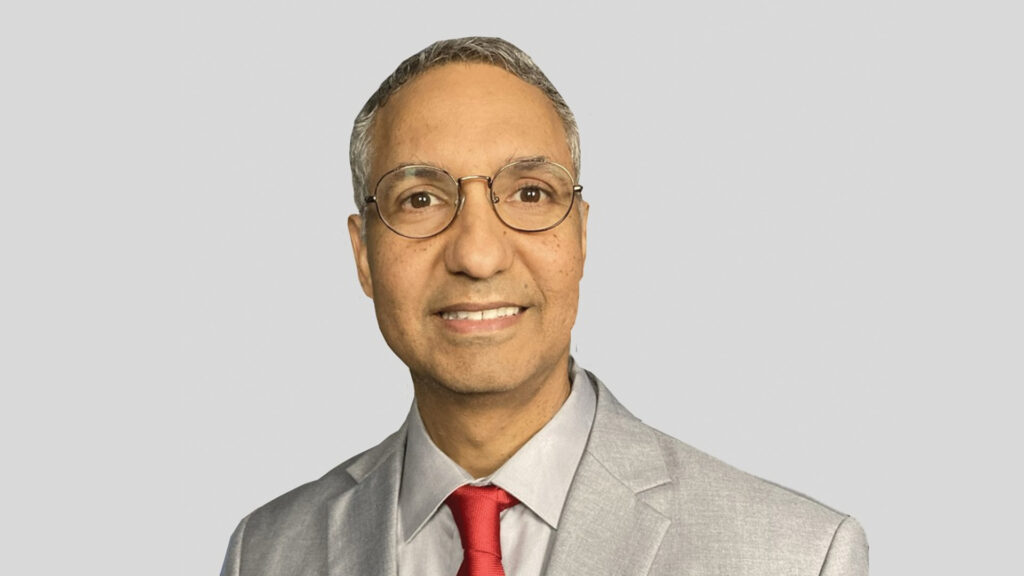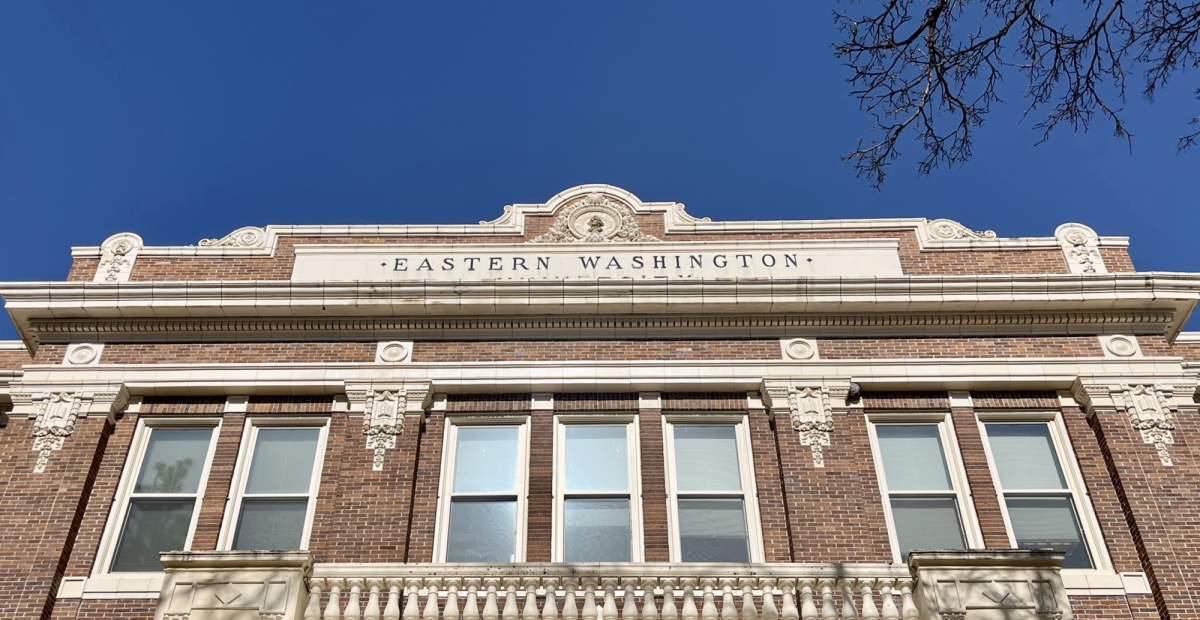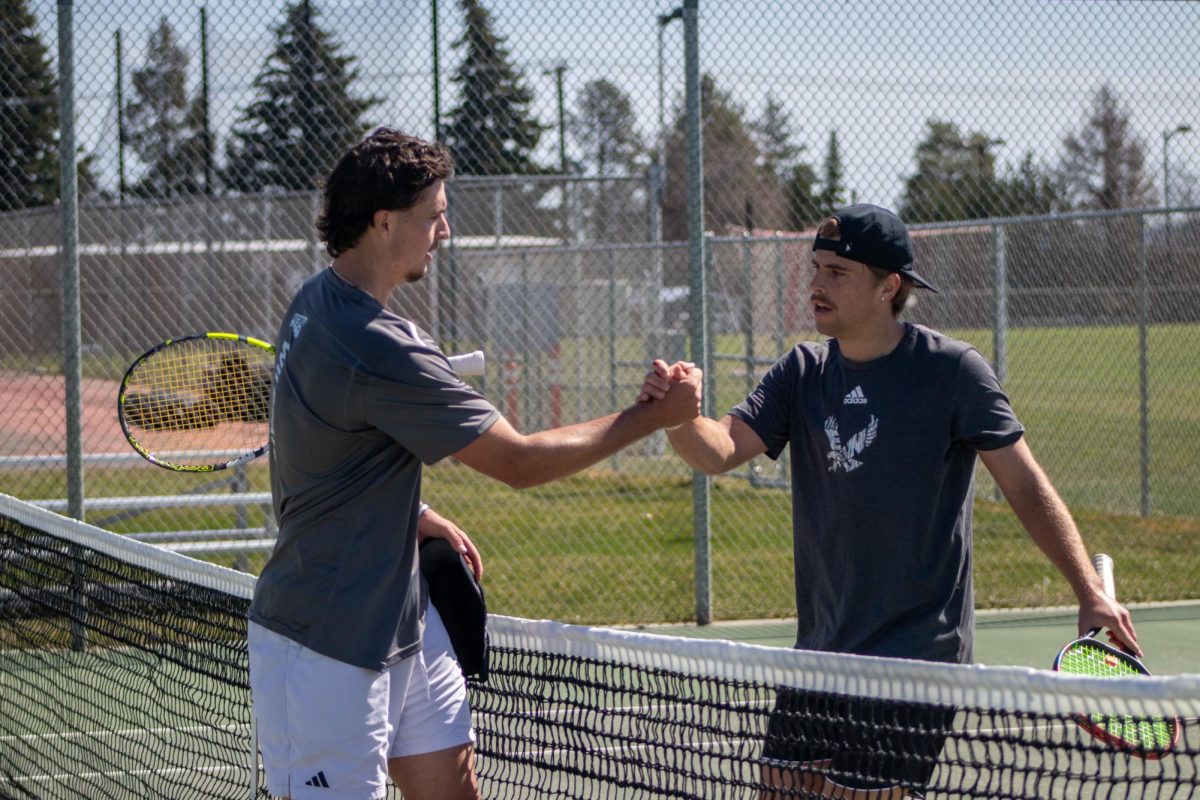WA state bill questions NCAA student athlete compensation
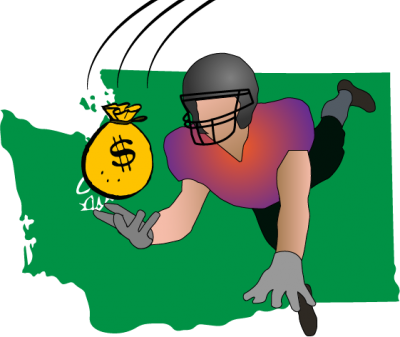
Washington state Senate Bill 5875 calls into question unfair practices involving compensation of athletes in higher education. The bill would make student athletes able to receive payment for their name, image or likeness.
February 27, 2019
Washington state 1st District Sen. Guy Palumbo proposed a bill on Feb. 8, that if passed, would put the state in the forefront of the national conversation about a compensation for student athletes beyond their education.
Washington Senate Bill 5875 called for students to receive compensation for use of their name, image or likeness and to be able to agree to be represented by an agent. It included that students should not be compelled to choose between forfeiting these rights and participating in college athletics.
The bill directly contradicts with NCAA guidelines, but would prevent Washington’s universities from enforcing NCAA rules under consumer protection laws.
Chris Mulick, a spokesperson for Washington State University, told the Senate Higher Education and Workforce Development Committee that, “We’d rather not be the guinea pig for this national situation,” on Feb. 19.
Morgan Hickel, associate director of state relations at the University of Washington was concerned the law would create confusion and “more or less encourage non-compliance.”
The Senate committee approved a revised version of the bill on Feb. 21 that appeased the schools that didn’t want to be, “guinea pigs.” The revisal added a new section that only makes the bill take effect if all the states with populations over 50 million enact similar legislation.
EWU athletic director Lynn Hickey shared concern with how the university would be able to comply with NCAA regulations if the bill came into effect, and ultimately wasn’t sure about how realistic it was.
“If it did pass I don’t know how the schools in Washington would be able to operate,” Hickey said. “Right now it wouldn’t matter if the bill was passed or not, we couldn’t use it. If we did all of our kids would be ineligible.”
Hickey added that an open compensation policy would create an unhealthy environment among colleges to bid against each other. She said part of the reason why all these rules are in place is because there is a tendency for people in the business to find their way around the rules.
“If one school calls you and says we can get you a contract with Nike for $50,000, the other schools gonna start bidding against you and say, ‘well we can get it up to $85,000’,” Hickey said.
EWU’s leading rusher last season, Sam McPherson said that if talks about student athlete compensation are coming up he would like to see Washington state provide more scholarships and cost of attendance stipends. Smaller schools like EWU don’t have the same funding as UW, WSU or powerhouse programs outside of the state.
“There are kids on full ride who still need to take out loans,” McPherson said. “I could name a couple guys on the (football) team specifically.”
McPherson added that giving student athletes extra opprotunities to be paid could be a good thing. He gave an example of a student athlete being paid to do a car dealership commercial in Spokane as a win-win situation, giving publicity to the dealership and the university, while allowing the athlete to make some money.
When it comes to selling a players likeness, both Hickey and McPherson agreed that it wouldn’t make much of a difference for the majority of student athletes, but McPherson gave the example of former EWU wide receiver Cooper Kupp and how he would’ve felt in his situation.
“If you’re Cooper Kupp I bet it’s hard seeing number 10 jerseys sold in the student store and you get none of that,” McPherson said. “Everyone is buying your jersey, but you don’t touch any of it. That’s gotta be a little tough.”

Los Angeles Rams and former EWU wide receiver Cooper Kupp looks on at the field during his college career in Cheney. Kupp was one of the EWU athletes McPherson referred to as potentially being able to sell his likeness while playing for the Eagles.
2018 Fred Mitchell Award winning kicker Roldan Alcobendas said that he can see both sides of the issue from the player’s and university’s perspective.
“We’re representing our university, but I think our name is kind of our brand,” Alcobendas said. “If we’re able to sell our brand and advertise our brand while marketing the school, I don’t really see an issue with that.”
Alcobendas gave the example of former University of Central Florida kicker Donald De La Haye, who in 2017 was forced to choose between his YouTube channel and his NCAA scholarship. De La Haye picked YouTube, leaving the team the same year. In 2018 he sued the university, reaching a settlement in November.
“He was doing nothing wrong,” Alcobendas said. “He was just creating entertainment through a website and getting paid for it. He was making fair money that anyone in the world has the opportunity to make.”
Alcobendas brought up Title IX and said there would be an issue between compensating men’s and women’s athletics equally. He added that there would be a larger gap between big and small schools, and that the focus would be taken off of academics.
Washington SB 5875 was referred to the Ways and Means Committee and as of this article’s published date has not yet been set for hearing.




